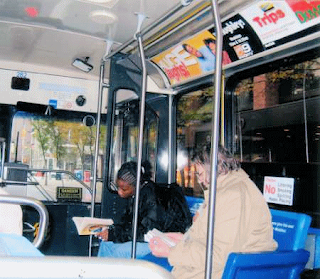The verb license or grant license means to give permission. The noun license (licence in English, British, Canadian and Indian spelling) refers to that permission as well as to the document memorializing that permission.
WikipediaYou like potato and I like potahto
You like tomato and I like tomahto
Potato, potahto, Tomato, tomahto.
Let's call the whole thing off
From "Let's Call the Whole Thing Off" by George and Ira Gershwin and Ira GershwinYou like tomato and I like tomahto
Potato, potahto, Tomato, tomahto.
Let's call the whole thing off
 I didn't realise I was bi-lingual; till last week, when I made a faux pas by criticising a certain persona non grata over his spelling of license It was twenty nine years ago today. He's spelled it "licence" and was using it as a noun. Which is in fact correct, if you are Australian or English.
I didn't realise I was bi-lingual; till last week, when I made a faux pas by criticising a certain persona non grata over his spelling of license It was twenty nine years ago today. He's spelled it "licence" and was using it as a noun. Which is in fact correct, if you are Australian or English.I work in the U.S. and hold both Australian and American citizenship. I was born in Australia and my formal education was there. So I'm fairly used to using American spelling at work, and Australian/English when I email friends and family in OZ.
But last week, I genuinely thought the persona non grata was incorrect in his spelling, of the word even though he's an Australiano-phile Brit. Note - by the very use of a made-up word, I'm sounding American.
So ... what to do when writing on the internet? I vote for American English as it was Americans who invented the internet.
I remember when the commercial internet was in its infancy, and Americans used smilies to indicate when they were joking. There was a feeling in the academic community in Australia at that time, that Americans used smilies because they couldn't express themselves with words.
That urban legend can be put to rest as smilies have become accepted currency world-wide.
A winking smiley is the graphic equivalent of the Australian "Joke Joyce". So in the spirit of international cooperation I should have said - I vote for American English as it was Americans who invented the internet.
On another topic altogether - It's strange, the image that many people outside of New York have of New Yorkers. Tough, smart asses (I'm deliberately mixing my spelling styles), money-hungry, uncompassionate ...
This is not at all true. Well the smart arse thing is, but in Australia we'd call it irreverent, displaying larrikin behaviour - and be proud of it. Or to put it more precisely, one man's smart ass is another man's larrikinism.
Take this bus story, for example. Since the recession I've noticed a new trend on the buses here.
More and more people are getting on the bus and not paying. There's a bus ticket reader thing near the driver where you are meant to swipe your MetroCard or deposit the fare in coins. Public transport is relatively cheap in New York and a few years ago it was extremely rare for people to evade paying.
These days I see at least five fare evaders per week. Their techniques vary. Some just walk confidently past the driver and if called back look surprised and say they forgot. These types pay. Others will use an expired card and when it is rejected say they have no cash. Others will pretend they didn't know that the ticket thingo doesn't take notes and will look helpless and try to insert a dollar bill in the coin opening. And some will say outright that they have no money.
Once the driver would have told such people to pay up or leave. Not so now. They invariably wave them on. "Just go and sit down," they'll say.
Once the other passengers would have spoken up and said how the person should pay, or that they'll give them change in exchange for the dollar note. Now they just put their heads down and pretend to read their Wall Street Journal, or fiddle with their iPod.
 A sad sign of the times.
A sad sign of the times.Yes, Australians might be larrikins and New Yorkers smart arses. But there's one thing the men on public transport in both Australia and New York have in common. How they sit.
Why do they sit like that? Does anybody know?
Do they know?
And how does one spell "smilie"?

2 comments:
They sit like that to enable them to place their stomach between their legs, thus easing the stress on their backs from supporting such weight.
Right on, Terry. Kate, give that bloke of twenty-nine years past the fingah. Oops, spelling........tsk, tsk!
Post a Comment